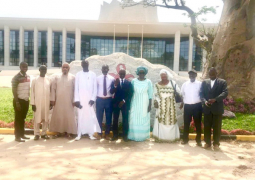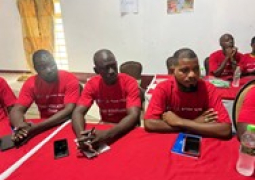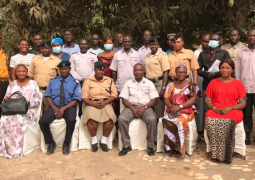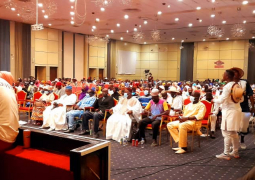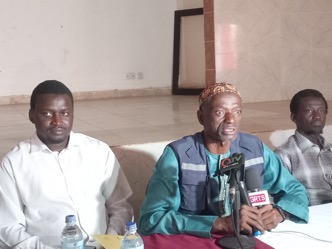
The event, currently underway at Tendaba Camp, seeks to enhance understanding on tobacco control policies, laws and regulation in the country, regional and global levels, as well as to build capacity for tobacco control law enforcement, particularly in relation to emerging products.
It is also meant to promote collaboration between legal professionals and public health specialists for comprehensive tobacco control efforts.
Addressing the opening, Momodou Gassama, a health promotion specialist at the World Health Organisation, while acknowledging the numerous advocacies undertaken by the Ministry against tobacco use, equally thanked them for convening such an important forum.
It was in that response, Gassama revealed that WHO has brought a team of consultants for the event, affirming that health is beyond just health.
He equally lauded the composition of participants which includes mainly judicial staff and police prosecutors, while acknowledging their role in enhancing health delivery.
“You are contributing more to health outcomes than mainstream health. The sign is there and it is evident. All the other sectors put together contribute 55% to the health outcomes. And the health sector alone contributes to 45%, so you are very important and contribute a lot to the health outcomes.”
He, however, called on all to be aware of the harmful effects of tobacco use, saying WHO has always been struggling with the tobacco industries.
“And all what WHO does is to generate the signs that countries need to develop their policies and regulate their laws as well as to sensitise and educate the populace.”
He also spoke about the financial losses related to tobacco use and that it is time people are aware of the harmful effect of this product.
Dr. Williams Onzivu, Technical and Legal Officer at World Health Organisation Regional Office for Africa, said the work of WHO is to work with the governments as primary implementers, acknowledging the country’s gains and achievements in tobacco control and in other health related areas.
“You might consider yourself a small country, but you are actually giant in terms of the accomplishment you have undertaken in health promotion and protection especially on tobacco control legislation, which is a good reference point not just in Africa, but globally and for which many countries would want to refer and benchmark when they are doing their own legislations.”
Commissioner Alhaji Kinteh, head of Police Medical Unit, Gambia Police Force, expressed gratitude to the Inspector General of Police for the importance he attached to tobacco control in the country.
He reminded police prosecutors of the herculean task as far as enforcement of the laws and regulations relating to tobacco control are concerned in the country.
He observed that due to the mass sensitisation in the country, some shops are doing away with the single sale of cigarette sticks in the country, for which, he commended all stakeholders for the move.
Commissioner Kinteh thus called on participants to always apply the law but be flexible sometimes to make a headway in their exercise.
“We are grateful to the Ministry of Health and I want to assure them that we will always answer to their call when the need arises.”
Declaring the event open, Dr. Mustapha Bittaye, director of Health Services at the Ministry of Health, commended WHO and for being a good partner of the Ministry in executing some of their initiatives.
He lauded the composition of the participants which are mainly from Interior and the Judiciary, something, he said, are vital in ensuring they deter people from the use of tobacco.
He spoke about the financial losses related with tobacco use, affirming the crucial role of other sector in health outcomes.
Health, he added, is not just the absence of disease, further urging participants to make best of their time and engage consultants, who he added, have experience in tobacco control issues.
Dr. Bittaye also reminded about the double burden of disease making refence to both Non-Communicable Diseases and Communicable Diseases.
“So, we are fighting two battles at the same time and your role is very critical and we expect from here, the enforcement will be increased.”
He challenged participants to use all means at their disposal to ensure that tobacco use in the country is reduced significantly.
Dr. Bittaye also informed that the Ministry is currently reviewing all its existing laws to harmonise it to speak the same language.
“Some of these laws are very old and as a result are no more responsive to the need for the Ministry. And among the laws we are reviewing is this tobacco control Act.” he added.


